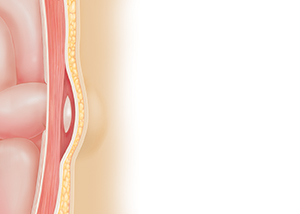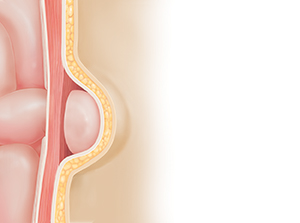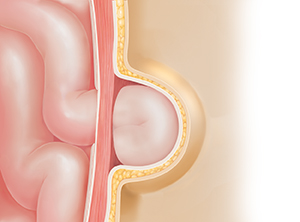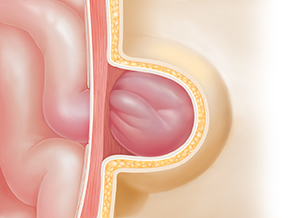A hernia bulge may appear suddenly, but hernias often take months or years to develop. They grow larger as pressure inside the body presses the intestines or other tissues out through a weak area in the belly (abdominal) wall. This is often at the belly button or a site of a past surgery. With time, these tissues can bulge out beneath the skin.
Stages of hernia development
The wall weakens or tears: The abdominal lining bulges out through a weak area and begins to form a hernia sac. The sac may contain fat, intestine, or other tissues. At this point, the hernia may not cause a visible bulge.
The intestine pushes into the sac: As the intestine pushes farther into the sac, it forms a visible bulge. The bulge may flatten when you lie down or push against it. This is called a reducible hernia. It does not cause any immediate danger.
The intestine may become trapped: The sac containing the intestine may become trapped by muscle (incarcerated). If this happens, you won’t be able to flatten the bulge. You may also have pain. You may need prompt treatment.
The intestine may become strangulated: If the intestine is tightly trapped, it becomes strangulated. The strangulated area loses blood supply and may die. This can cause severe pain and block the intestine. You need emergency surgery.





